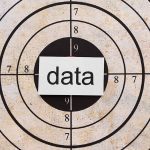Master Data Management (MDM) promises to reduce supply chain costs and standardize business activities across the enterprise, resulting in faster implementation of goods and services. According to Supply Chain magazine, many companies falsely believe they already have an acceptable MDM solution or even forgo one. However, to truly leverage your MDM system, whether to be or … [Read more...] about How To Develop An Enterprise Master Data Management Strategy
Big Data
Learn everything you need to know about big data. Find out how companies are using this revolutionary technology and what it means for your business strategy.
7 Ways Small Businesses Can Leverage Big Data
The amount of data in the world is increasing rapidly. By the time you are done reading this article, 700,000 Facebook posts will be uploaded, 100 million texts will be sent, and 25 GB of traffic will be received on the web. Big data is everywhere, from the social media we use to the Netflix shows you watch, but did you know your small businesses can leverage big data? Big data … [Read more...] about 7 Ways Small Businesses Can Leverage Big Data
Data Lake Architecture: Benefits and Characteristics
With the rapid advancement in technologies, companies are now in search of a better way to ensure that organizational data and information are kept safe and organized. One way through which businesses are doing this is through the use of Data Lakes to create a centralized place management infrastructure that allows every organization to manage, store, analyze and classify … [Read more...] about Data Lake Architecture: Benefits and Characteristics
Data Architecture: Characteristics & Principles
In information technology, data architecture is composed of models, policies, rules or standards that govern which data is collected, and how it is stored, arranged, integrated, and put to use in data systems and in organizations. Data is usually one of several architecture domains that form the pillars of an enterprise architecture or solution architecture. Responsibilities of … [Read more...] about Data Architecture: Characteristics & Principles
How Data Analytics Is Revolutionizing Building Information Modeling
he building and construction industry is becoming more tech-centric than ever. While the sector was resistant to new, cutting-edge technologies for much of its history, construction companies have started to embrace digital transformation. One of the most impactful of these new digital tools is building information modeling (BIM). BIM provides a fast, accessible digital … [Read more...] about How Data Analytics Is Revolutionizing Building Information Modeling
What is big data?
Big data is a term that refers to the massive amount of digital data created and shared every day. Big data can transform how we live, work, and communicate. It can be used to improve everything from public health and urban planning to business and marketing.
Big data is also changing the way we think about privacy and security. The volume, velocity, and variety of big data present challenges and opportunities for organizations and individuals. Regardless, big data is here to stay, and its impact will only continue to grow in the years to come.
What is big data analytics?
Big data analytics is the process of turning large, complex data sets into actionable insights. Businesses use various analytical tools and techniques, including machine learning and statistical analysis, to do this.
Big data analytics can be used to improve decision-making in areas like marketing, operations, and customer service. It can also be used to identify new business opportunities and optimize existing processes. With the help of big data analysis, businesses can gain a competitive edge by using their data better.
Want to learn more about big data? Datafloq has courses available. Contact us to get started.
When was big data introduced?
The term big data was coined in the 1990s, with some giving credit to John Mashey for popularizing the term. However, the concept of big data has been around for much longer.
Where does big data come from?
In the early days of computing, scientists and businesses began to realize that the amount of data being generated was increasing exponentially. As a result, they began to develop new methods for storing and processing data.
Over time, these methods have become increasingly sophisticated and have played a key role in enabling businesses to make sense of vast amounts of information. Today, big data is used in various industries, from retail to healthcare, and its importance is only likely to grow in the years to come.
What are examples of big data?
One of the most common examples of big data is social media data. With over 2 billion active users, Facebook generates a huge amount of data every day. This includes information on user interactions, posts, and even location data. Analyzing this data can help companies better understand their customers and target their marketing efforts.
Another example of big data is GPS signals. These signals are constantly being generated by devices like cell phones and fitness trackers. When combined with other data sets, GPS signals can be used to provide insights into everything from traffic patterns to human behavior. Finally, weather patterns are another type of big data set. By tracking these patterns over time, scientists can better understand the impact of climate change and develop strategies for mitigating its effects.
How do companies use big data?
Companies use big data in marketing, product development, and customer service. By analyzing large data sets, businesses can identify patterns and trends that would be otherwise difficult to spot. For example, a company might use big data to track customer behavior patterns to improve its marketing efforts.
Alternatively, a company might use big data to improve its products by identifying areas where customers are most likely to experience problems. For instance, big data can be used to improve customer service by finding pain points in the customer journey. Ultimately, big data provides companies with a valuable tool for gaining insights into their business operations.






